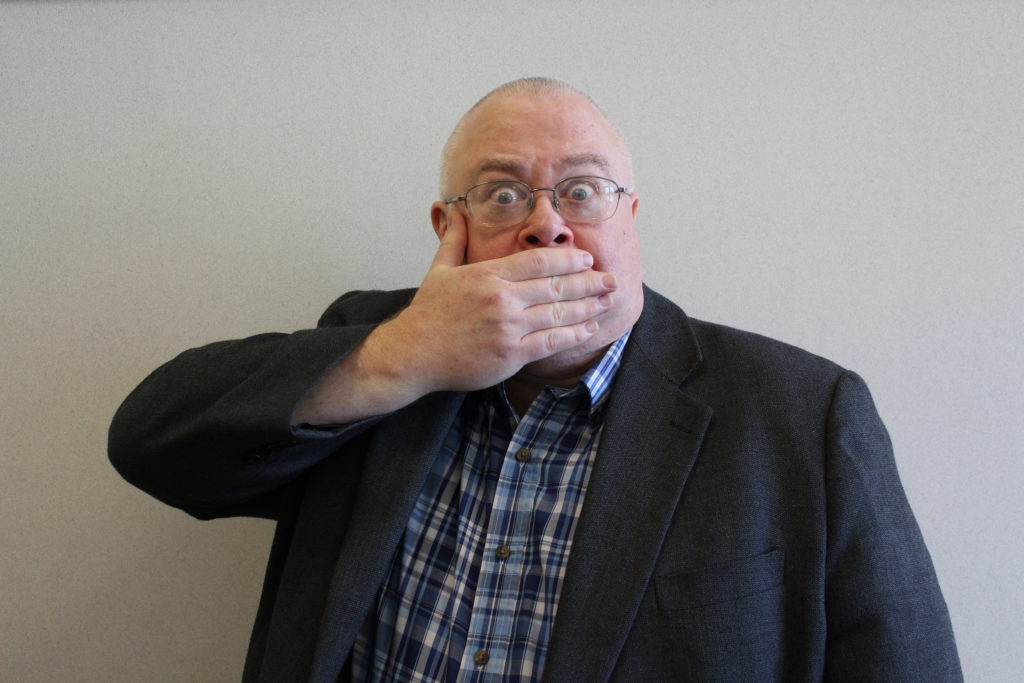With only two faculty members, sociology is one of the smallest departments at Hillsdale. What the department lacks in size, however, it makes up for in passion.
Many students learn the basics of sociology in Sociology 101: Understanding Society and Culture. The class covers a range of sociological studies, giving students an interdisciplinary view of the subject. The department has much more to offer than the introductory course, however.
For junior Katherine Miller, the small size of the department is a blessing since it has allowed her to seek one-on-one guidance with Professor of Sociology and Culture Peter Blum, the head of the department.
“Because the department is so small, there’s that connection with your professors that’s a lot more present than in your other core classes and your other major classes,” Miller said. “The little moments that I really enjoy are before class starts, and we’re just talking with Dr. Blum about things and just joking around. That’s always super fun.”
Miller took Sociology 101 in the fall semester of her freshman year to satisfy a requirement for the core. Initially, she admits, she found the class overwhelming.
“I was getting used to Hillsdale and it was just a lot of information.” she said of the class, “But it really did pique my interest.”
During the spring, Miller noticed that she got excited any time a sociological topic would come up in another class.
“I realized at that point that I wanted to try taking more sociology classes,” she said.
Eventually, Miller declared a double major in sociology and English.
Hillsdale began offering classes in sociology in the 1890s at a time when it was uncommon for small, liberal arts colleges to teach the subject, according to Christoper Robertson, visiting assistant professor of social science.
“It was about as good as it gets, and about as mainstream as it gets among small liberal arts colleges,” Robertson said.
Blum received his doctorate from the University of Notre Dame before joining the Hillsdale faculty in 1992.
“I was sort of expected to redo the program,” Blum said.
He sought to emphasize the more theoretical side of the subject, thus making the program more interdisciplinary.
The interdisciplinary nature of the sociology department at Hillsdale is what initially attracted junior Sarah Rands to the program.
Rands said she enjoyed analyzing various perspectives in her Sociology 101 class, allowing her to better defend her viewpoints.
“That was what drew me to it because I could formulate and I could say ‘OK, I have these beliefs, and here’s why I have these beliefs.’”
Rands also appreciated the flexibility of the sociology major which allowed her to take any subject without many prerequisites. This helped her specialize in her area of study quickly.
“When you commit to a major or a minor, you’re committed to all of the really basic core classes too,” Rands said. “This was a way to kind of bypass that for me personally.”
After graduation, Rands hopes to go to law school and work to defend victims of human trafficking. She said the critical thinking and research skills she has gained from her time in the sociology department have prepared her well.
Robertson encouraged students interested in sociology to take classes with the department.
“Don’t be afraid of sociology, and don’t believe the rumors,” Robertson said, joking that many people believe sociology is a liberal field. “Give it a shot!”
Both Robertson and Blum said they are passionate about the subject and their students. While they understand the hesitancy some students have about sociology, they want to emphasize the positive effects of the subject.
“It encourages curiosity, empathy, and a willingness to take seriously the views of folks you like, folks you don’t like— ones you know, ones you don’t know, the weirdos, the normal people, and everyone in between,” Robertson said, “I think the world probably needs a bit more of that these days.”
![]()

